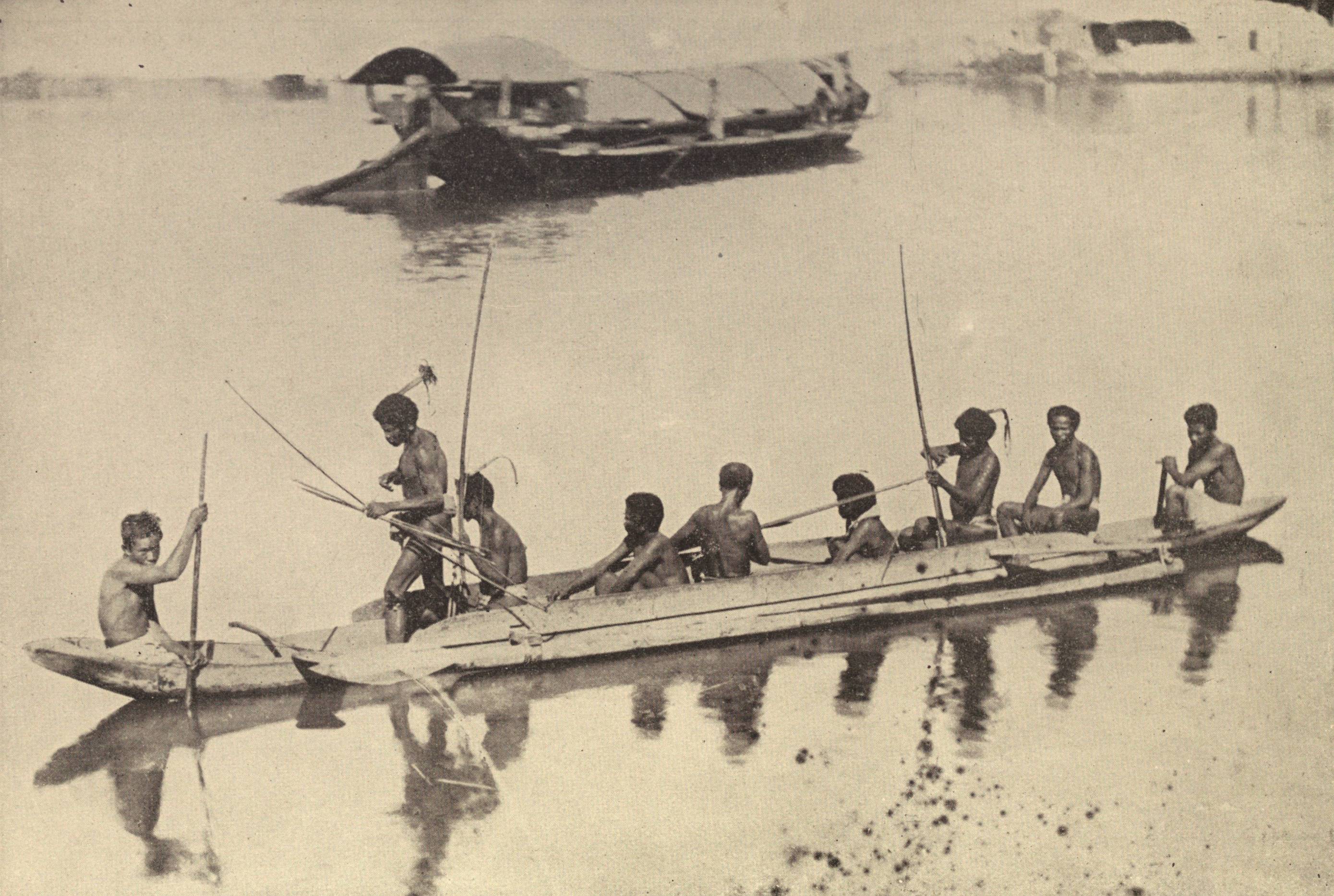Useful concepts—that is, meme combinations that
correspond to peaks on the fitness landscape—are “found” by the people in a
culture over generations of that culture’s evolution because through trial and
error, the concepts prove effective. They enable people who are capable of
thinking with them and using them to design behaviour patterns to survive and
flourish. They are almost never the only combinations of ideas or behaviour
patterns that could work in that environment. People of other cultures with
similar but not identical morés could survive there. Human societies are very
capable and versatile, as are the various species in a living ecosystem.

Stilts fishermen, Sri Lanka (credit: Wikimedia Commons)

Ice fishing, Canada (credit: Wikimedia Commons)

Bow fishing, Philippines (credit: Wikimedia Commons)
Whichever culture/society/tribe settles in a given
ecosystem, it will come to think with memes, concepts, values, and morés that
enable the people to survive. People can learn to fish with hooks or nets or
spears or gaffs or baskets, depending on what materials are available in the
region and what technologies are already familiar to its people. But the
chances are very good that if there are lots of fish in a lake, then any tribe
that settles next to it will learn to fish, by one method or another.
People in varied cultures in many parts of the
world also establish markets in the middle of their towns for commercial activities
like the selling of fish, and they hire police to patrol the market to stop
thieves. Getting fish out of the water and into human stomachs is healthy for
those humans who learn to catch fish and to set up markets. They outrun neighboring tribes who are not quite so resourceful and vigorous. Marketplaces, police
officers, and currencies are efficient social constructs because they help
societies that invent them to maximize the usefulness of what their citizens produce; they allow
capital to flow, in a timely way, to where it can do the most good.
Some meme complexes we call values or principles
steer us toward institutions that are advantageous for the tribe and especially
for those subgroups that believe in the effective values most devoutly. The
values survive because they foster behaviour
patterns that work for the people who hold these values. The tribe members who hold these values most passionately then
survive to pass the values on to their young.
No comments:
Post a Comment
What are your thoughts now? Comment and I will reply. I promise.